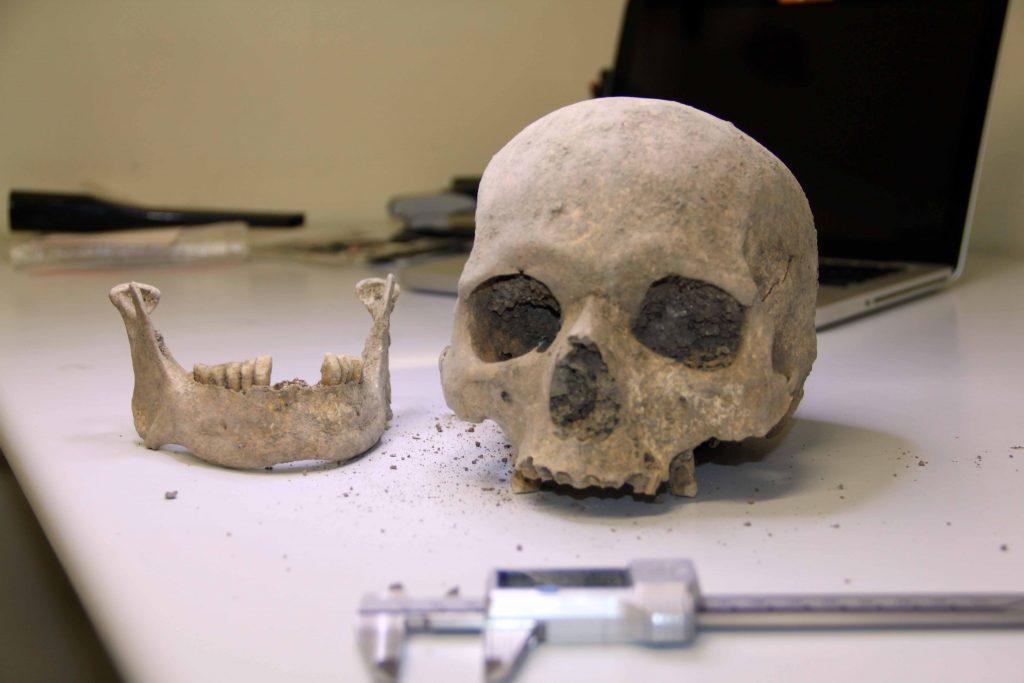
A 1,000-year-old skull and various bones thought to belong to an African person have been found at the excavations at the ancient city of Bathonea near Lake Küçükçekmece in Istanbul.
The skull differs from the other 70 skulls found in the city with its wider face and forehead structure, spreading nose and pronounced jaw, according to experts.
Examination of these bones revealed that the skeleton was not a slave and died naturally.
This is the first African skull found in excavations in Istanbul, Ömer Turan from Istanbul Forensic Medicine Institute says.
“The lack of deterioration or destruction in the body of the African shows that he is not a slave or a servant, and he died naturally. The man, whom we estimate to be a man aged 30-40, has rewritten the history of Istanbul,” Turan said.
“We found many skeletons in 10 years, but the fact that one of them is African is a proof of the city’s multiculturalism,” he added.
Şengül Aydıngün, head of the excavation, also said they thought the skull belonged to a merchant who brought and sold trade goods from Africa.
“We have realized that Lake Küçükçekmece was a bay of the Marmara Sea in the past through geomorphological and geological investigations,” Aydıngün said.
“Commercial boats transporting goods from the Mediterranean Sea and Aegean Sea to the Black Sea have used this port for 5,000 years.
There are paintings in Yarımburgaz cave similar to the 4,000-years-old Minoan civilization boats,” she noted.
“Although they are on the shore of the sea and the lake, it is interesting that they do not eat seafood. But in their deaths, there’s little chance of torture or murder. There was no mass death. We observed bone diseases and vitamin deficiencies, indicating that they suffer from nutritional deficiencies, Turan said.
“Although the average age ranged from 24 to 25, there were also those who reached the age of 50,” he added.
Flint tools to prove that agricultural knowledge passed through Europe to Istanbul, had been found previously in the excavations at Bathonea.
There were also traces to prove the first Hittite marks on the European continent.
Traces of the Thracian and Phrygian tribes were found to prove the migration of them from the Bosphorus to Anatolia 3,000 years ago.